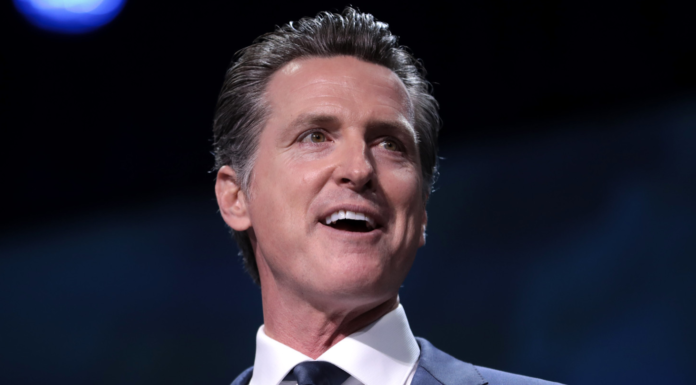(Jon Miltimore, FEE) Gov. Gavin Newsom (D-CA) took to Twitter earlier this week to crow about California ’s “first-in-the-nation” gas price-gouging law designed to prevent oil companies from overcharging consumers.
“A NEW independent watchdog — The Division of Petroleum Market Oversight — will monitor the industry to help ensure you’re not being ripped off,” Newsom tweeted. “Time to hold oil companies accountable.”
The legislation, which was signed into law in March and went into effect on Monday, requires refineries to send daily reports to the petroleum oversight division — all to protect consumers by shining “a light on price manipulation so Californians aren’t vulnerable to the greedy whims of Big Oil,” in Newsom’s words.
The idea that greedy oil companies are swindling consumers is alluring, especially since California has the highest gas prices in the country — about $1.08 more than the U.S. average, according to Jamie Court, the president of Consumer Watchdog.
But there are better explanations for California’s high gas prices than “price gouging.”
For starters, California consumers pay 83.5 cents in taxes and fees for every gallon of gas they pump, according to the Energy Information Administration — more than any other state with the exception of Illinois (85.8 cents per gallon).
This alone is a big reason Californians pay much more for gas than most other Americans, but it’s not the only reason.
California has some of the highest costs of doing business in the United States because of high taxes and regulation, which is a major reason why businesses are fleeing California in “unprecedented numbers,” according to a 2022 Hoover Institution study.
And then there is the matter of refineries.
Proximity to oil refineries plays a key role in gas prices, and California has been losing refineries for years, including several during the tenure of Newsom, who has all but declared war on fossil fuels with proposals to ban gas-powered vehicles and end drilling in the Golden State.
Wayne Winegarden, a senior fellow at the Pacific Research Institute, told me California is down to 14 operable refineries after recent closures, including a refinery in Martinez that was converted into a manufacturing facility for renewable fuels in 2021.
As a result, California has seen a decadeslong decline in the percentage of oil refined in its state. In 1984, California accounted for 17.4% of the oil refined in the U.S. By 1999, the amount had fallen to 14.5%, and in 2023, it stands at 10.9%.
“This law is going to discourage production,” Winegarden said.
Newsom’s price gouging rhetoric may be convincing to many — including local media in California, which ran wild with the narrative — but it flunks Econ 101.
Like everywhere else, gas prices in California are determined by supply and demand. And though high prices are annoying to consumers, they are important market signals. For consumers, high prices signal that a good is scarce and should be conserved. For producers, high prices signal the opportunity for profit, which encourages production and investment.
By threatening to choke the profits of producers, Newsom stands to discourage production and investment, something even many of his Democratic colleagues seem to understand.
“What I try to look for are what the hell are the unintended consequences?” California state Sen. Bill Dodd, a Democrat, said in February while speaking of the legislation.
The truth is, the Division of Petroleum Market Oversight cannot solve a simple economic reality: scarcity.
“The first lesson of economics is scarcity: There is never enough of anything to fully satisfy all those who want it,” the economist Thomas Sowell famously observed. “The first lesson of politics,” he continued, “is to disregard the first lesson of economics.”
Prices are what help us navigate scarcity. Newsom’s oversight division doesn’t know the “proper” profit margin for refineries any more than it knows the “proper” price for gasoline, and it was this kind of meddling in markets from President Richard Nixon that resulted in the gas lines of the 1970s . (Audio recordings show Nixon knew his price controls wouldn’t work , but he passed them anyway because he saw them as politically advantageous.)
Pointing the finger at “greedy” oil companies might be politically expedient for Newsom, but policing profit is no way to lower prices. Moreover, it overlooks a simple truth.
The state of California took 54 cents for every gallon of gasoline sold in the Golden State in 2022 — about 10 times the average profit margin of retail gasoline stations that year. This goes to show it’s not gas stations or oil companies that are “gouging” consumers, but lawmakers such as Newsom.



